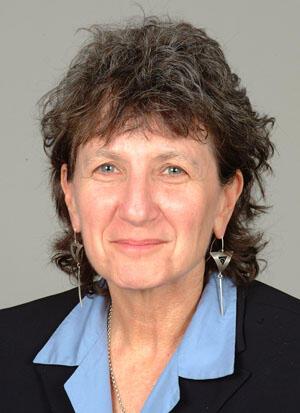Judy Wilkenfeld
When Judy Wilkenfeld died after a protracted battle with pancreatic cancer, the world lost more than one of its most important tobacco control leaders. Judy's contributions to tobacco control were extraordinary, but what made Judy Wilkenfeld unique were the ways she brought people together, made everyone with whom she came into contact better, and became a close and trusted friend, confidante, mentor, and role model to so many people with whom she worked—young and old, from different continents, cultures, ethnic backgrounds, religious beliefs, and world views.
Judy contributed to the effort to reduce the death toll from tobacco use for more than 20 years. However, until she left federal service in 1999, few people outside of her close friends were aware of her contributions. The fact that for nearly two decades Judy's name rarely appeared next to her important contributions is a testament to her commitment to doing what is right.
Judy Wilkenfeld joined the Federal Trade Commission in 1980, where she served for 14 years as Program Advisor for Tobacco (the person in charge of all tobacco related matters for the FTC) and assistant director for advertising practices in the Bureau of Consumer Protection. Judy was the FTC's lead attorney in FTC vs Brown & Williamson Tobacco Corp in 1985, the case that served as a catalyst for the first real exposé about the ways tobacco companies manipulate their products to deceive the public.
She served as lead attorney for the FTC “In the Matter of RJ Reynolds Tobacco Company” in 1990, the first case brought by the US government that challenged a tobacco industry advertisement that wrongfully disputed the health risks of smoking. She also was instrumental in the FTC decision to sue RJ Reynolds over the tobacco company's use of the cartoon character, “Joe Camel,” and in crafting the government's regulations governing health warnings on smokeless tobacco products pursuant to the Comprehensive Smokeless Tobacco Health Education Act of 1986.
Listing Judy's achievements at the FTC however does not do justice to what she accomplished. She continually battled a bureaucracy that was more supportive of the tobacco companies than our nation's health. She persevered, often alone, to fight for what was right.
In 1994, the US Food and Drug Administration announced that it was investigating the tobacco industry to determine whether it had authority over tobacco products and their marketing. At the invitation of the FDA's Dr David Kessler, Judy joined the FDA as “special advisor for tobacco policy.”
It is hard to describe the commitment of time, energy, and scholarship that Judy contributed to the FDA's effort between 1994 and 1996. The net result was that the FDA team produced a brilliant document — one that is responsible for a fundamental reshaping of how people think of tobacco and the tobacco industry.
Judy's retirement from federal service was just the beginning of a new career when she joined the Campaign for Tobacco‐Free Kids; it is fair to say that she was most proud of the emergence of the first truly international alliance of non‐governmental organizations in support of tobacco control that now includes more than a hundred organizations from all over the world.
Judy's role was quintessentially Judy. To her it was essential that every person's voice be heard without regard to whether they came from a wealthy nation or a poor nation, the north or the south, or were part of a powerful organization or the smallest NGO.
Her commitment to civil rights and equal treatment wasn't rhetoric. She showed that Martin Luther King's dream of a world where people are judged by the content of their character and not the color of their skin is possible—from her early involvement in the civil rights movement, to her adoption of an African‐American infant at a time when interracial adoption was extremely controversial.
Judy was a devoted colleague and consummate professional, but first and foremost she was a wife, mother, and grandmother. To know Judy for 30 seconds was to appreciate her unequivocal love for her family. How many people had meetings with Judy where the only thing they can remember is her talking glowingly and with pride about her husband, children, or her grandchildren?
Judy's impact goes so far beyond her professional achievements. She may no longer be with us but her legacy will continue every day in the hundreds of people from every walk of life whom she inspired. Judy inspired, taught, mentored, and befriended hundreds of tobacco control advocates. She did so because of her humility, her love of her fellow human beings, and her respect for every person with whom she dealt. Her legacy will live on in the work that those she inspired continue to do.
Joel Spivak, a long time campaign colleague who loved Judy dearly, summed up his feelings better than I could. He wrote:
“In any lifetime you meet a few people who are unique, special and unforgettable. It's a quality you can't teach. It's a gift. Judy had it.”
Adapted from article in “Tobacco Control.” Used by permission.



